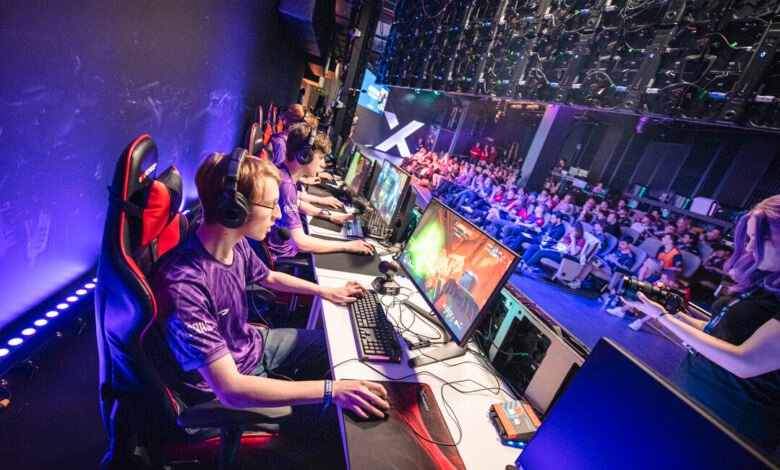Why Esports Is More Than Just Gaming and Builds Careers and Communities

Esports has grown far beyond being a niche hobby. What started as informal LAN parties and local tournaments has developed into a billion-dollar global industry with millions of dedicated fans worldwide. Over the past decade, advancements in internet infrastructure, streaming platforms, and game development have fueled this rapid growth, turning esports into a mainstream cultural phenomenon. Today, esports fills arenas, attracts millions of online viewers, and provides real career opportunities that rival traditional sports. It blends technology, entertainment, competition, and community into one cultural phenomenon that continues to shape how people interact and engage online. This article explores how esports extends far beyond gameplay, shaping professional paths and fostering tight-knit communities that inspire and empower individuals globally.
Esports as a Launchpad for Careers
The esports industry offers a wide range of career opportunities that go well beyond being a professional player. Roles such as coaches, analysts, content creators, streamers, marketers, event organizers, and software developers all contribute to the ecosystem’s growth. These professions require a variety of skills, including strategic thinking, communication, creativity, and technical expertise, making esports a diverse field for employment. Furthermore, the rise of esports media outlets and tournament organizers has created new jobs in broadcasting, production, and event management, expanding career possibilities for those interested in the business side of gaming.
Professional teams now rely on a full support structure: performance psychologists to manage mental health, nutritionists to optimize player fitness, and social media managers to build fan engagement. This evolution has made esports more professional and sustainable, helping players maintain peak performance and longevity. Universities around the world have recognized this trend by launching esports-related degree programs, equipping students with specialized knowledge to succeed in the industry. The emergence of structured career paths signals that esports is not a passing trend but a lasting professional domain with vast opportunities, reflecting the industry’s maturation and increasing legitimacy.
Community Engagement and Cultural Impact
One of the most significant aspects of esports is its ability to bring people together across geographical and cultural barriers. Esports communities are vibrant, diverse, and international, providing fans with a platform to connect over a shared passion for competition and gaming culture. Platforms like Twitch, Discord, and YouTube allow real-time communication, fostering dynamic interactions between fans, players, and creators, which enhances the sense of belonging and engagement. These platforms also encourage user-generated content, fan-led initiatives, and grassroots tournaments that strengthen the fabric of the esports community.
In fact, many young people today find their social circles within esports communities rather than in traditional settings. These online hubs nurture creativity through fan art, memes, and community-run tournaments, encouraging teamwork and shared learning experiences. According to gaming news platforms, these communities are becoming increasingly influential in shaping gaming culture and digital interaction patterns, with major esports events acting as cultural festivals in the virtual world that unite millions of viewers around common interests. The communal spirit fosters cross-cultural exchange and empathy, making esports a bridge between diverse groups.
Esports Education and Youth Development
Esports is also playing an increasing role in education, serving as a tool for teaching valuable skills beyond gaming. High schools and universities are forming official esports teams and leagues, providing students with opportunities to compete at various levels while learning essential life skills. Skills like teamwork, strategic thinking, communication, and time management are integral to competitive gaming and easily transferable to other academic or professional settings. Some schools even incorporate esports into curricula focused on digital literacy, media production, and computer science.
Some educational institutions use esports programs to engage students who may not participate in traditional sports or extracurricular activities, helping to promote inclusivity and retention. Moreover, esports can act as a gateway to STEM fields, sparking interest in areas like computer science, engineering, and data analytics through hands-on exposure to game design, broadcasting, and software development. Many students find esports as a motivating platform that combines passion with learning, fostering discipline and perseverance. This growing academic recognition of esports demonstrates its potential to contribute positively to youth development and career readiness.
Economic Growth and Industry Innovation
The business side of esports is booming, driving significant economic growth worldwide. Revenue streams like sponsorships, advertising, broadcasting rights, merchandise sales, and live event tickets have created a multibillion-dollar industry. Global companies from diverse sectors—including technology, beverage, apparel, and finance—are investing heavily in esports to reach younger, digitally native audiences, fueling further expansion. This influx of capital has enabled the creation of large-scale international tournaments with prize pools rivaling traditional sports.
This commercial success drives continuous innovation in gaming hardware, broadcasting tools, virtual production technology, and data analytics, elevating the viewer experience and player performance. These innovations create new jobs, promote startup activity, and influence other entertainment sectors. Additionally, localized esports events contribute to city economies through tourism, hotel bookings, and venue rentals, similarly to traditional sports. The ecosystem continues to grow, creating opportunities both at the grassroots and corporate levels, which makes esports a major player in the global entertainment economy and a fertile ground for technological advancement.
Diversity, Inclusion, and Accessibility
Esports is one of the most accessible competitive environments in the world, removing many traditional barriers to participation. Unlike many physical sports, esports does not require specific physical attributes, expensive equipment, or large venues. With just a decent PC or console and an internet connection, anyone can start their journey, leveling the playing field for participants from different backgrounds and regions. This accessibility empowers individuals who might otherwise face exclusion in traditional sporting arenas.
This accessibility has opened doors for people with disabilities, marginalized groups, and underrepresented communities who historically faced obstacles in traditional sports or social spaces. Esports organizations and event organizers are increasingly committed to promoting inclusion and diversity through initiatives like all-women tournaments, mixed-gender leagues, and strong anti-toxicity campaigns that aim to foster safe, respectful, and welcoming environments. Such efforts highlight esports’ potential as a progressive and inclusive movement, empowering voices that might otherwise remain unheard and setting an example for broader societal change.
Conclusion
Esports has transformed into far more than just gaming. It now encompasses diverse career opportunities, educational programs, and community development, with a significant cultural and economic impact worldwide. From fostering new professional pathways to building inclusive digital communities, esports continues to redefine what it means to play, work, and connect in the modern world. Its growth highlights the potential of technology to unite people, create value, and drive innovation across many spheres of life.
As the industry grows, it proves to be one of the most influential and multifaceted sectors of the 21st century—blurring the lines between entertainment, innovation, and human connection. Esports stands as a testament to how technology and passion can come together to build vibrant communities and sustainable careers that resonate across generations, changing perceptions about gaming and digital culture for years to come.





